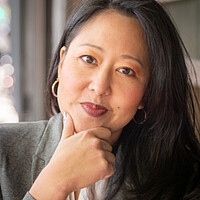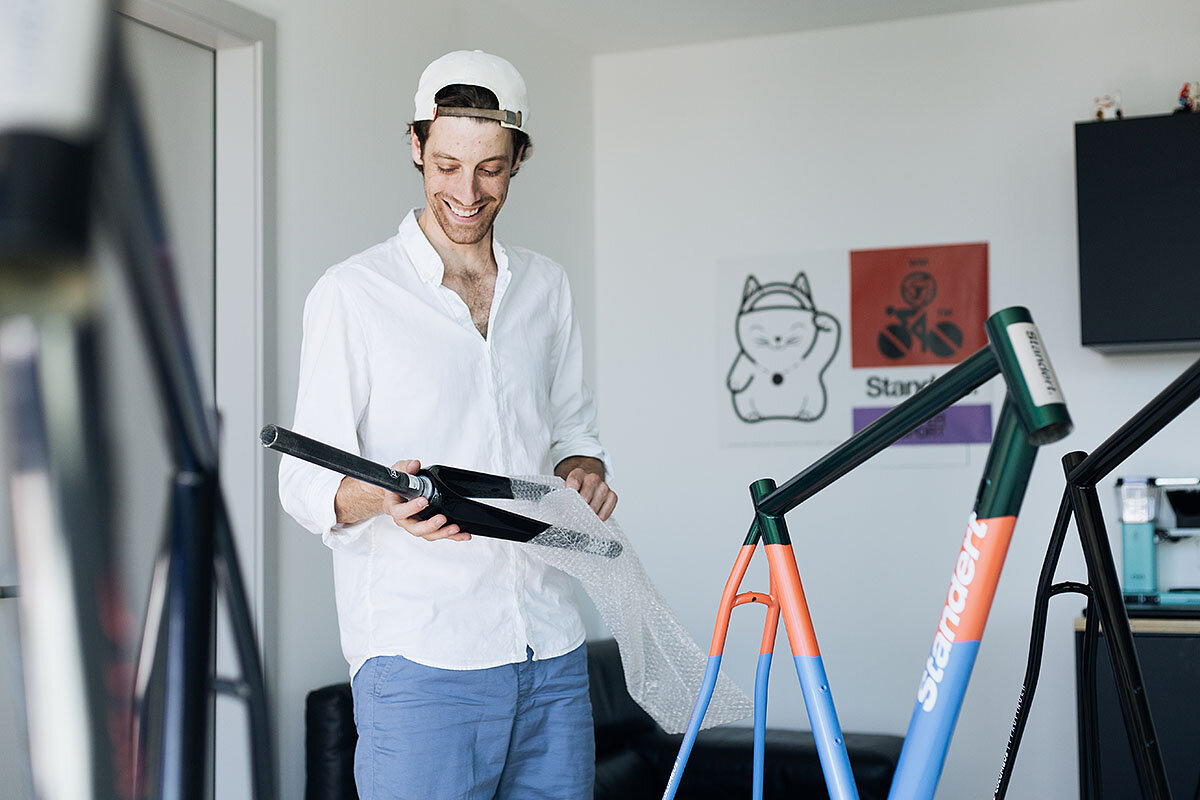Who’s ‘essential?’ From Germany to the US, you might be surprised.
Loading...
| Berlin
When Germany announced the country would be closing for business to try to contain the spread of the coronavirus, Standert Bicycles was one of the lucky retailers. Berlin considers bike shops an “essential business.”
But they were surprised to discover just how essential they are.
“Raw sales numbers increased,” says head of marketing Benedict Herzberg, despite closing their physical store and going online-only for a high-end product that people typically want to see in person many times before purchasing. People flocked to Standert’s website and phone lines to buy commuter bikes, in part to avoid public transport during the pandemic. “They want bikes now. It’s not, ‘OK, we can deliver in a week or two.’ They’re calling for pickup in an hour. N-O-W.”
Why We Wrote This
Amid lockdowns, which services are considered crucial? Depending on where you are, the answers range from supermarkets to golf. But some open stores share a common sentiment: pride in providing for their neighbors.
As the COVID-19 pandemic swept across the globe, the implementation of lockdowns has forced hard choices on what businesses are critical to a functioning society. There is a clear consensus that banks, grocery stores, gas stations, and the like qualify as essential services. But other decisions about what is essential reveal the character of country and culture.
Editor’s note: As a public service, we’ve removed the paywall for all our coronavirus coverage. It’s free.
And even as some purveyors in the U.S. and Europe struggled with early logistical challenges of remaining open, they found unexpected joy in being “essential.”
Perhaps it was predictable that Berlin would let the bike shops stay open. Cycling has run deep in German culture ever since the first two-wheeled bicycle was invented by a German nobleman in 1817. Apart from that, Mr. Herzberg says, the decision was prudent governance. “It empowers people to go out, breathe fresh air, strengthen your immune system,” he says.
Standert Bicycles’ retail store – which normally doubles as a repair shop, café, and post-training hangout for cyclists – has had to go mostly online. But it has found success that way, running its 2,000-member cycling club virtually and developing a platform to allow members to go online, grab a route they like, and track themselves by GPS.
“Cyclists will always cycle,” Mr. Herzberg says.
And the sense of community – once celebrated in person at the shop and cafe – transferred to goodwill online. “We offered returning customers a discount, and some told us to take it and ‘put it in the tip box for corona times.’”
Escape on the fairways
Florida has made headlines for one of its more questionable recipients of essential status: professional wrestling. But perhaps more important to the well-being of its citizenry, though still controversial, is golf. The Sunshine State has more golf courses than any other U.S. state, and they were declared essential in a number of counties. That changed the fate of the semi-private Palm Cove Golf Club, especially as another important outdoor outlet – beaches – were ordered shut.
“Our gates were flooded,” says Richard Pfluger, Palm Cove’s golf shop manager. “We showed record numbers – over 200 rounds a day – during times we normally have 75.” Golfers came over from neighboring counties whose courses were closed, and others seized the ever-rarer opportunity to get fresh air.
Staying open required the “unexpected altruism” of the community, says Mr. Pfluger. Friends of the club helped procure scarce masks, gloves, and sanitizers. Some staffers left because they were concerned. The days were long, and overtime was on order.
“When the dust started to settle, I felt a certain accomplishment for having dealt with the stress,” says Mr. Pfluger. There was also a pride in servicing the community during challenging times.
“Floridians live their days outside. It’s an outdoor culture, and we’re getting lots of thank-you’s for being open, lots of thank-you’s for sanitizing the golf carts,” says Mr. Pfluger. “We have an 87-year-old guy who walks nine holes every afternoon and made a plea for us to stay open so he can get his exercise.”
“Providing happiness to people”
In France, where the average person consumes almost 60 pounds of cheese a year, cheese shops were declared essential. So were chocolatiers and patisseries. Bernard Mure-Ravaud, owner of the cheese shop Fromagerie les Alpages in the city of Grenoble, found he’s been able to reconnect with his customers in new ways.
After 37 years of business, Fromagerie les Alpages is back to the basics. Clients used to come in from all over the region; now they trickle in from the surrounding neighborhoods. Since no one’s in a rush to get anywhere, clients linger and discuss recipes in detail.
“It’s much more intimate because service takes longer. It’s as if we are returning to traditional commerce, commerce of the past,” Mr. Mure-Ravaud says. He’s also seeing a lot of “children” – people he’s known since they toddled in with their parents decades ago. Now, they shop for their parents and grandparents, who are distancing at home.
To combat isolation, Mr. Mure-Ravaud has launched virtual wine tastings on Facebook and Instagram Live, which have been attended by more than 100 people.
“I am not a nurse or on the front line, but I’m still here to provide some happiness to people,” says Mr. Mure-Ravaud. “Before this, people never said thank you. Now, they say thank you for being open. I am very proud.”
Editor’s note: As a public service, we’ve removed the paywall for all our coronavirus coverage. It’s free.







